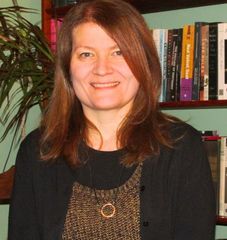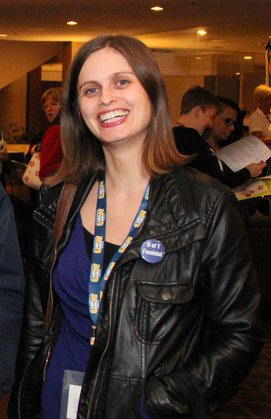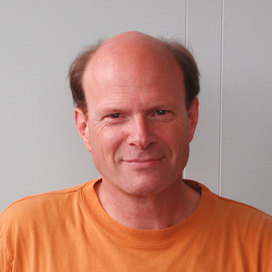 Lynn Arner
Lynn Arner
Greetings from Canada, where almost all universities are unionized.
For three years (2004-2007), I taught at the University of Pittsburgh in a full-time contingent post in the Department of English. Although I adored the students and benefited professionally from Pitt’s prestige, I quickly learned that prestige couldn’t pay my bills. I accepted a tenure-track, unionized position at Brock University near Toronto, where the structural terms of my employment improved dramatically. Fortunately for me, my union requires that salaries be based on years of teaching experience rather than on previous annual earnings. My annual raises both take into account cost-of-living increases and reward each year of continued employment at Brock. Today as an associate professor, I earn nearly double the salary of my spouse, who is a tenured professor of English at Pitt, and I get a sabbatical to support my research every three years--or six semesters--of teaching an annual 2/2 load. At Pitt, tenure-stream English professors have sabbaticals only after every six years of teaching.
Canadian faculty unions have been able to push back against some of the corporatization that has decimated American academe. For example, my union’s collective agreement mandates that only 18% of our courses can be taught by instructors outside the tenure stream. My union (BUFA) also conducts confidential salary inquiries to ensure pay equity between male and female faculty members in comparable disciplines. My union protects workers during the tenure process to ensure that candidates are judged not according to capricious standards of popularity or collegiality but according to their records of publication, teaching, and service.
I highly recommend faculty unions for preserving workers’ rights and for facilitating intellectual freedom and rigorous standards of teaching and research. Because of my union, I no longer struggle financially.
--Lynn Arner, Associate Professor of English, Brock University, Canada
For three years (2004-2007), I taught at the University of Pittsburgh in a full-time contingent post in the Department of English. Although I adored the students and benefited professionally from Pitt’s prestige, I quickly learned that prestige couldn’t pay my bills. I accepted a tenure-track, unionized position at Brock University near Toronto, where the structural terms of my employment improved dramatically. Fortunately for me, my union requires that salaries be based on years of teaching experience rather than on previous annual earnings. My annual raises both take into account cost-of-living increases and reward each year of continued employment at Brock. Today as an associate professor, I earn nearly double the salary of my spouse, who is a tenured professor of English at Pitt, and I get a sabbatical to support my research every three years--or six semesters--of teaching an annual 2/2 load. At Pitt, tenure-stream English professors have sabbaticals only after every six years of teaching.
Canadian faculty unions have been able to push back against some of the corporatization that has decimated American academe. For example, my union’s collective agreement mandates that only 18% of our courses can be taught by instructors outside the tenure stream. My union (BUFA) also conducts confidential salary inquiries to ensure pay equity between male and female faculty members in comparable disciplines. My union protects workers during the tenure process to ensure that candidates are judged not according to capricious standards of popularity or collegiality but according to their records of publication, teaching, and service.
I highly recommend faculty unions for preserving workers’ rights and for facilitating intellectual freedom and rigorous standards of teaching and research. Because of my union, I no longer struggle financially.
--Lynn Arner, Associate Professor of English, Brock University, Canada
 Jason McCune
Jason McCune
To my fellow academic workers at the University of Pittsburgh:
You are about to vote on whether to form a union as academic workers of the University of Pittsburgh. This is a wonderful opportunity for you to stand together to exercise your power so that you’ll be able to negotiate a binding legal contract with your employer. You may have fears about taking such a step; there were many people here at Point Park University who had them. You may feel that even taking a stand, organizing, and voting yes will open you up to reprisals or jeopardize your academic standing and position. I assure you, nothing could be further from the truth.
Along with other part-time Point Park faculty, I spent months organizing before finally petitioning for a vote, which we won by a landslide. I then served on the contract bargaining committee, going toe-to-toe with the administration and its anti-union lawyer to hammer out a collective bargaining agreement for the Point Park University part- time faculty. It was the first of its kind in the city, and it guaranteed us rights and provisions that before had only been given at the university’s discretion-- including a 22 percent raise over three and a half years. In the ten years before we’d had only a single 4 percent raise.
This could ONLY be accomplished through collective bargaining, and collective bargaining can ONLY be acquired and legally protected by unionizing. The reason for any group wishing to organize its own union to reach out to an existing one like the USW is that doing so offers all those involved legal protections. You have the right to organize and form a union, and it will be to your benefit to do so.
You may hear that some outside organization will gain control over all aspects of your employment: your rules, your classrooms, your lives. Again, nothing could be further from the truth. You will become your OWN union, run by YOU and your fellow faculty, with rules set by yourselves, for YOUR benefit and protection. Voting yes allows you to do this. The USW is there to help you, but it is not in charge of your union or its members. YOU will sit at the bargaining table, YOU will decide what goes in the contract, and YOU will have the ultimate say, with the USW there to support and facilitate that contract negotiation.
I cannot urge you strongly enough to sign a card and vote yes. Your power lies in standing together as one by forming a union. You have that opportunity now.
--Jason McCune, Conservatory of Performing Arts, Point Park University
You are about to vote on whether to form a union as academic workers of the University of Pittsburgh. This is a wonderful opportunity for you to stand together to exercise your power so that you’ll be able to negotiate a binding legal contract with your employer. You may have fears about taking such a step; there were many people here at Point Park University who had them. You may feel that even taking a stand, organizing, and voting yes will open you up to reprisals or jeopardize your academic standing and position. I assure you, nothing could be further from the truth.
Along with other part-time Point Park faculty, I spent months organizing before finally petitioning for a vote, which we won by a landslide. I then served on the contract bargaining committee, going toe-to-toe with the administration and its anti-union lawyer to hammer out a collective bargaining agreement for the Point Park University part- time faculty. It was the first of its kind in the city, and it guaranteed us rights and provisions that before had only been given at the university’s discretion-- including a 22 percent raise over three and a half years. In the ten years before we’d had only a single 4 percent raise.
This could ONLY be accomplished through collective bargaining, and collective bargaining can ONLY be acquired and legally protected by unionizing. The reason for any group wishing to organize its own union to reach out to an existing one like the USW is that doing so offers all those involved legal protections. You have the right to organize and form a union, and it will be to your benefit to do so.
You may hear that some outside organization will gain control over all aspects of your employment: your rules, your classrooms, your lives. Again, nothing could be further from the truth. You will become your OWN union, run by YOU and your fellow faculty, with rules set by yourselves, for YOUR benefit and protection. Voting yes allows you to do this. The USW is there to help you, but it is not in charge of your union or its members. YOU will sit at the bargaining table, YOU will decide what goes in the contract, and YOU will have the ultimate say, with the USW there to support and facilitate that contract negotiation.
I cannot urge you strongly enough to sign a card and vote yes. Your power lies in standing together as one by forming a union. You have that opportunity now.
--Jason McCune, Conservatory of Performing Arts, Point Park University
 Kristy Bard
Kristy Bard
When I started working at the University of Toronto as a Chair’s Assistant in 2008, administrative and technical employees had already been represented by USW 1998 for a decade. Our local was in the midst of a massive job evaluation and pay equity project. As a result, in 2012 hundreds of us received a letter from HR notifying us that our salaries would be increased. Thanks to the new pay grid, I received thousands of dollars in retroactive pay and the potential to earn even more in the future.
The Steelworkers have meant a lot more to me than extra money in my paycheck, though. This union devotes resources to educating members by offering a variety of courses, which are regularly scheduled and updated. The Education and Equality Department also designs new courses to continue to meet member’s needs. Most important, the Steelworkers train member-facilitators like me to bring these courses to the membership, helping to promote member confidence and empowerment, women’s rights, and union activism.
The Steelworkers are like a family. You can feel the unity any time you attend a conference, course, or rally. When I graduated from university in 2003, my only ambition was to get a union job because I knew it was my best chance at having security, decent wages, benefits, and a pension. What I didn’t know was that my union would provide me with real opportunity, deep friendships, and a sense of belonging.
I hope you will vote to join the Steelworker family. This union has the resources and the experience required to take on the Pitt administration to ensure you are treated with the respect and fairness you deserve. Because it’s a democratic institution, you have complete say over whom you elect to lead your local and what priorities your local will focus on. But you can also rely on the Steelworker network to provide you with the support any new local needs early on and to have your back when you’re fighting for your first contract. We are family, after all, and I look forward to welcoming you at a future Steelworker University caucus meeting!
--Kristy Bard, USW Local 1998 Grievance Officer; USW Local 1998 Co-Chair, Women of Steel Committee
The Steelworkers have meant a lot more to me than extra money in my paycheck, though. This union devotes resources to educating members by offering a variety of courses, which are regularly scheduled and updated. The Education and Equality Department also designs new courses to continue to meet member’s needs. Most important, the Steelworkers train member-facilitators like me to bring these courses to the membership, helping to promote member confidence and empowerment, women’s rights, and union activism.
The Steelworkers are like a family. You can feel the unity any time you attend a conference, course, or rally. When I graduated from university in 2003, my only ambition was to get a union job because I knew it was my best chance at having security, decent wages, benefits, and a pension. What I didn’t know was that my union would provide me with real opportunity, deep friendships, and a sense of belonging.
I hope you will vote to join the Steelworker family. This union has the resources and the experience required to take on the Pitt administration to ensure you are treated with the respect and fairness you deserve. Because it’s a democratic institution, you have complete say over whom you elect to lead your local and what priorities your local will focus on. But you can also rely on the Steelworker network to provide you with the support any new local needs early on and to have your back when you’re fighting for your first contract. We are family, after all, and I look forward to welcoming you at a future Steelworker University caucus meeting!
--Kristy Bard, USW Local 1998 Grievance Officer; USW Local 1998 Co-Chair, Women of Steel Committee
 John Ankenman
John Ankenman
Before we unionized, the Victoria University administration had the right to change our terms of employment unilaterally. During the late 1990’s it implemented a number of employment provisions that reduced the quality of our working conditions, including cutting our yearly sick days in half. At that point, several of us decided we needed a union and chose the Steelworkers to mount a certification drive. In May 1999 the organizing campaign ended with the staff voting in favour of joining the Union.
There is no doubt that we are stronger than before we joined the Steelworkers. Our strength comes in part from being part of an international union that has many times provided us with needed resources. It comes from being able to draw on support from the other units of our local and the Steelworkers Toronto Area Council. Most importantly, we derive our strength from working together to create an effective voice for ourselves in the Victoria University community. As Steelworkers, we play an active role in determining the terms and conditions of our employment.
--John Ankenman, USW Local 1998 Victoria University Unit President
There is no doubt that we are stronger than before we joined the Steelworkers. Our strength comes in part from being part of an international union that has many times provided us with needed resources. It comes from being able to draw on support from the other units of our local and the Steelworkers Toronto Area Council. Most importantly, we derive our strength from working together to create an effective voice for ourselves in the Victoria University community. As Steelworkers, we play an active role in determining the terms and conditions of our employment.
--John Ankenman, USW Local 1998 Victoria University Unit President
 Karen Fronzaglio
Karen Fronzaglio
My grandmother came from Poland to America as an infant in 1902 and grew up in the coalfields of Pennsylvania. In my childhood, I often sat in the sun with on her back porch steps, and there on many occasions she would tell me about life in a large immigrant family. She told me about the Company and the Company Store, the Iron and Coal Police, the constant presence of hunger. And she told me about the importance of unionization and the way her people’s lives improved when they joined one—both my grandfathers were members of the AFL-CIO. At the time they were just stories to me, but ones that were worth hearing. I seem never to have forgotten them.
In 1968, when I was 22 and newly graduated from college, (my grandma had left school at the end of third grade), I was hired by the Pittsburgh School District as a teacher/school librarian. The American Federation of Teachers--the AFT—was struggling to form a union. Another young teacher asked me if I would like to join. When I hesitated, he asked—“Do you plan to live with your parents forever? And “Do you have a trust fund?” Well, no…and no again. I had not thought beyond the individual pursuit of a job and a paycheck, but I understood what he was telling me and joined the AFT. Since then, I have participated in many of the other opportunities presented by union membership. At Robert Morris, our membership in the USW has resulted in better wages and job security, ensured by one of the best contracts for adjuncts anywhere in the US. But I think the most important thing by far is the collective nature of the group, which gives us power and allows us to have significant input into the state of our working lives. “We the people” does not refer only to the leadership but to the ordinary workers who call out our courage to stand and join the union. It is the democratic thing to do.
--Karen Fronzaglio, Reference Librarian, Robert Morris University; USW Local 1088 Guide
In 1968, when I was 22 and newly graduated from college, (my grandma had left school at the end of third grade), I was hired by the Pittsburgh School District as a teacher/school librarian. The American Federation of Teachers--the AFT—was struggling to form a union. Another young teacher asked me if I would like to join. When I hesitated, he asked—“Do you plan to live with your parents forever? And “Do you have a trust fund?” Well, no…and no again. I had not thought beyond the individual pursuit of a job and a paycheck, but I understood what he was telling me and joined the AFT. Since then, I have participated in many of the other opportunities presented by union membership. At Robert Morris, our membership in the USW has resulted in better wages and job security, ensured by one of the best contracts for adjuncts anywhere in the US. But I think the most important thing by far is the collective nature of the group, which gives us power and allows us to have significant input into the state of our working lives. “We the people” does not refer only to the leadership but to the ordinary workers who call out our courage to stand and join the union. It is the democratic thing to do.
--Karen Fronzaglio, Reference Librarian, Robert Morris University; USW Local 1088 Guide
 Mary-Marta Briones-Bird
Mary-Marta Briones-Bird
Since 2008 I’ve been a member of USW Local 1998, Unionized Administrative and Technical Staff at the University of Toronto. Joining the union changed my life. After graduating with a bachelor’s degree in 1999, I took a series of temporary and contract non-union jobs. I took them not by choice but by necessity. Many were interesting jobs; however, the hours were long, stress was high, and I had no health or retirement benefits, never mind job security. In 2006 on the eve of the global economic recession, I was laid off from my job in the television industry and spent almost a year looking for work. Finally, I was able to secure a temporary position at the University of Toronto then a year later, a term position, and a year after that a continuing administrative one. Working at the University of Toronto in a unionized position has meant economic independence. Knowing that I have health benefits gives me a sense of security that I cherish. Being unionized has brought up the standard of living for all of us working in administrative and technical positions, from administrative assistants and information technology professionals to laboratory workers, recruiters and student counsellors, and has meant that the jobs we do are well respected within our city and community. It’s nice to know I can cover my housing costs and the necessities of life in one of Canada’s most expensive cities, and put a little aside for travel and enjoying life. Union membership has historically meant economic independence for women. It certainly has meant that for me.
--Mary-Marta Briones-Bird, Administrative Coordinator, Faculty of Information, University of Toronto
--Mary-Marta Briones-Bird, Administrative Coordinator, Faculty of Information, University of Toronto

